Helena Porrelli: Without aid, refugees are lost
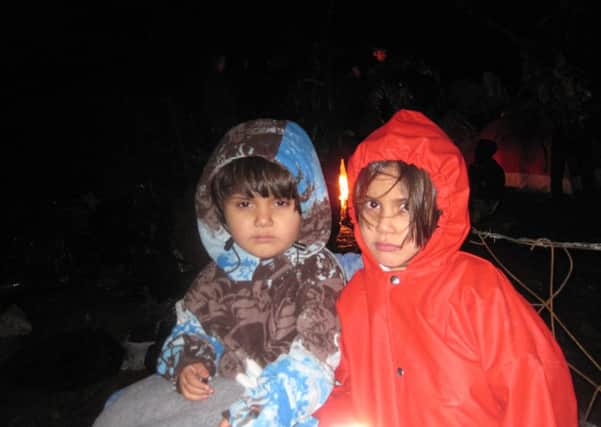

Until now, I had witnessed each step of their journey in the reverse order to which they do it. I had begun my trip in Mytilini, Lesvos’s main town, which is where they leave the island, boarding huge ferries to mainland Greece.
There in the port they are generally in good spirits and there is a sense of eager anticipation. They have registered with the Greek government and have their papers allowing them entry for their onward journey. The future looks very bright.
Advertisement
Hide AdAdvertisement
Hide AdThen I visited Moria, which for the non- Syrian refugees is the step prior to the port, where they must register. The centre up in the hills outside Mytilini is notorious for its inhumane conditions.
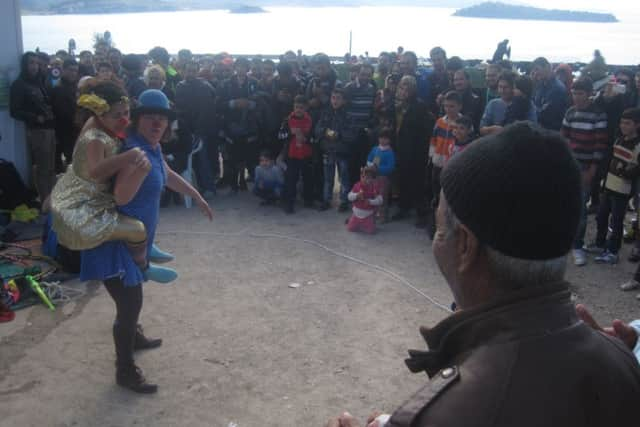

People are forced to stand outside in lines waiting to register, in a system that means that if they leave the line, they lose their place.
Men, women and children are outside in cold winds, almost always wet in some way, whether it be their whole body, just their bottom half, or their feet from scrambling ashore off the boats. Nothing is provided by the state. Not even shelter. Hot food, water, clean and dry clothes, tents and medical aid are provided by various international and local NGOs.
Without them, these people would be totally abandoned. My night there was spent identifying the wettest and coldest in the line, finding them clean clothes and helping them change. Others distributed clothes to hundreds of people from the back of an old Royal Mail van, driven out here by a UK volunteer.
We saw several people with hypothermia and feet that had been wet so long they were shrivelled and white. We did all we could with the resources we had.
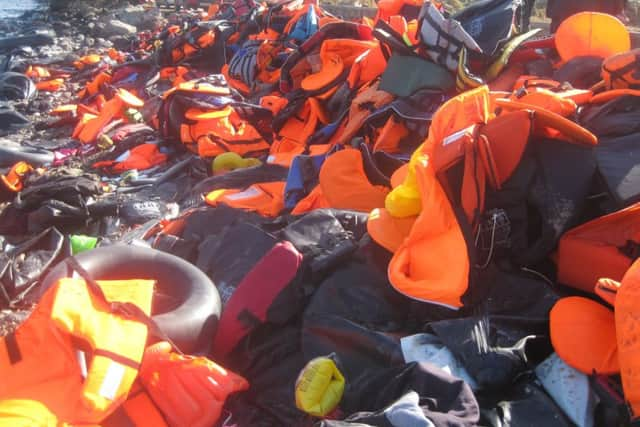

Next, I found myself in Oxi camp, which you could say is the 2nd step in the refugees’ journey on Lesvos. They are bussed or walk here upon arrival from the boat. Here Syrians are separated from non-Syrians to be put on buses to go to the separate registration centres, as Syrian nationals are given priority.
Again, people arriving are wet, cold and hungry and my night here was also spent changing women and children into clean dry clothes and shoes, whilst a separate men’s tent dealt with the men.
As we work, I begin to learn key clothing vocabulary in Arabic and Farsi.
Advertisement
Hide AdAdvertisement
Hide AdNow in Eftalou, the final piece of the puzzle has fallen into place, the refugees’ first step: landing on Lesvos. There is less than 10km between here and where they set out from the Turkish coast. We watch the little orange dots at sea growing bigger as they near us. Standing on the pebbly beach strewn with abandoned life jackets and black rubber rings we wave an orange life vest to signal to them to head straight to us.
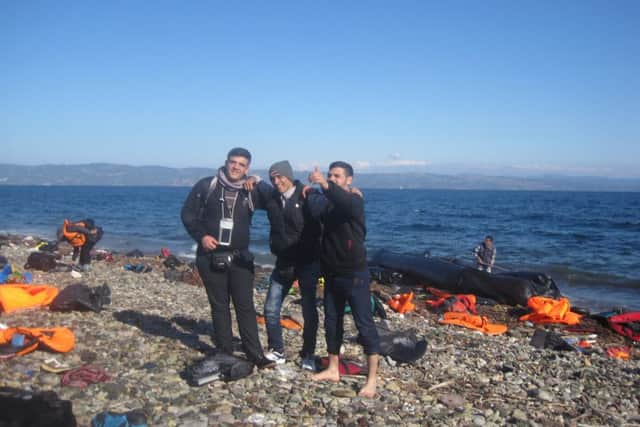

They arrive surprisingly quickly if their engine is still working, and it’s all hands on deck to keep people calm. Everyone struggles to clamber over the high rubber side and much help is needed to keep people from falling into the water.
Children and babies are passed first into waiting hands and onto the shore. Women and elderly are next. Men manage alone. Soon the dinghy is empty of people but full of debris and water. It is punctured immediately with a knife and the rigid metal plates salvaged along with the engine.
Photos are taken and friends and relatives called to announce a safe arrival.
It finally dawns on me how long the people we meet in Moria have been sitting with wet clothes – it could have been a whole day or more if they have slipped through the net of overstretched volunteers trying to change people along each step of the way.
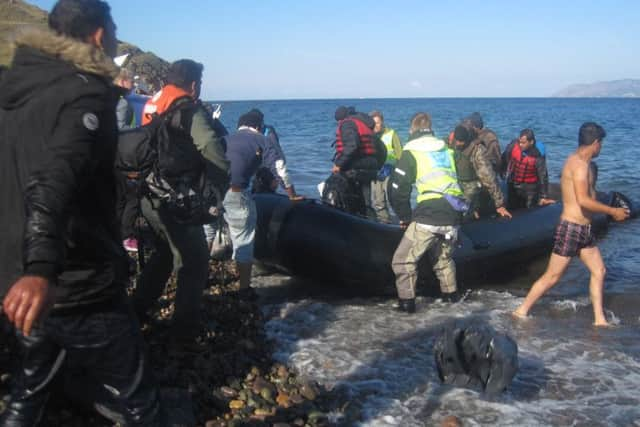

On a calm crossing, people are usually calm, relieved to see dry land again. Some arrivals are jubilant, as cries of “Alhamdulilah” and “Thank you, thank you, merci, appreciate very much” fill the air.
Calm boats coming across calm waters are easy. People are hopeful, happy. Obviously it is not always like that.
The engine of one boat had failed very close to the shore. They were rowing as best they could and luckily the sea was bringing them right towards us. The people on board however, were terrified and panicking. Spanish volunteer lifeguards swam out to accompany them in, reassuring them.
Advertisement
Hide AdAdvertisement
Hide AdIn another arrival yesterday, we watched terrified as an enormous bathtub of a boat carrying over 100 people including many children pitched and tossed in the swell, changing direction every few minutes. The refugees were shut inside. If anything had happened they would surely all have gone down with the boat.
Our fear for this vessel’s safety was intensified after the tragic sinking of a boat carrying about 300 people the previous day. 248 were rescued. It is clear that many lives were lost, missing somewhere at the bottom of the sea. Who they were will probably never be known.
Bringing in people who have had a rough crossing is hard. The frantic whistling from their life jackets, the screams for help, the cries of babies and children, the panic, hysteria and anguish are heart-wrenching.
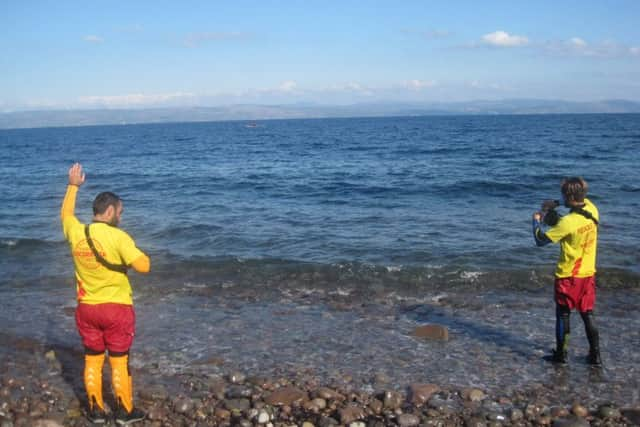

All we can do is stay calm, make eye contact, smile, hold hands, comfort, pick up screaming children, and give warm hugs.
Tell everyone it’s OK and that they are safe now, they are on dry land. Get on with wrapping shivering bodies in emergency blankets and helping them onto the next stage of their journey. We don’t need it, but in return, heartfelt thanks come our way in broken English, hands squeezed, cheeks kissed in gratitude.
Helena Porrelli works with volunteers on the ground in Lesvos, a Greek island, working hard to alleviate the suffering of the thousands of refugees who pass through daily on their way to Europe.
Her blog is here - https://asafeplacetocallhome.wordpress.com/
The team hope to raise 1000 euros to rent a van to improve aid distribution, you can donate here: https://www.generosity.com/fundraisers/buy-or-rent-a-van-for-aid-distribution-lesvos